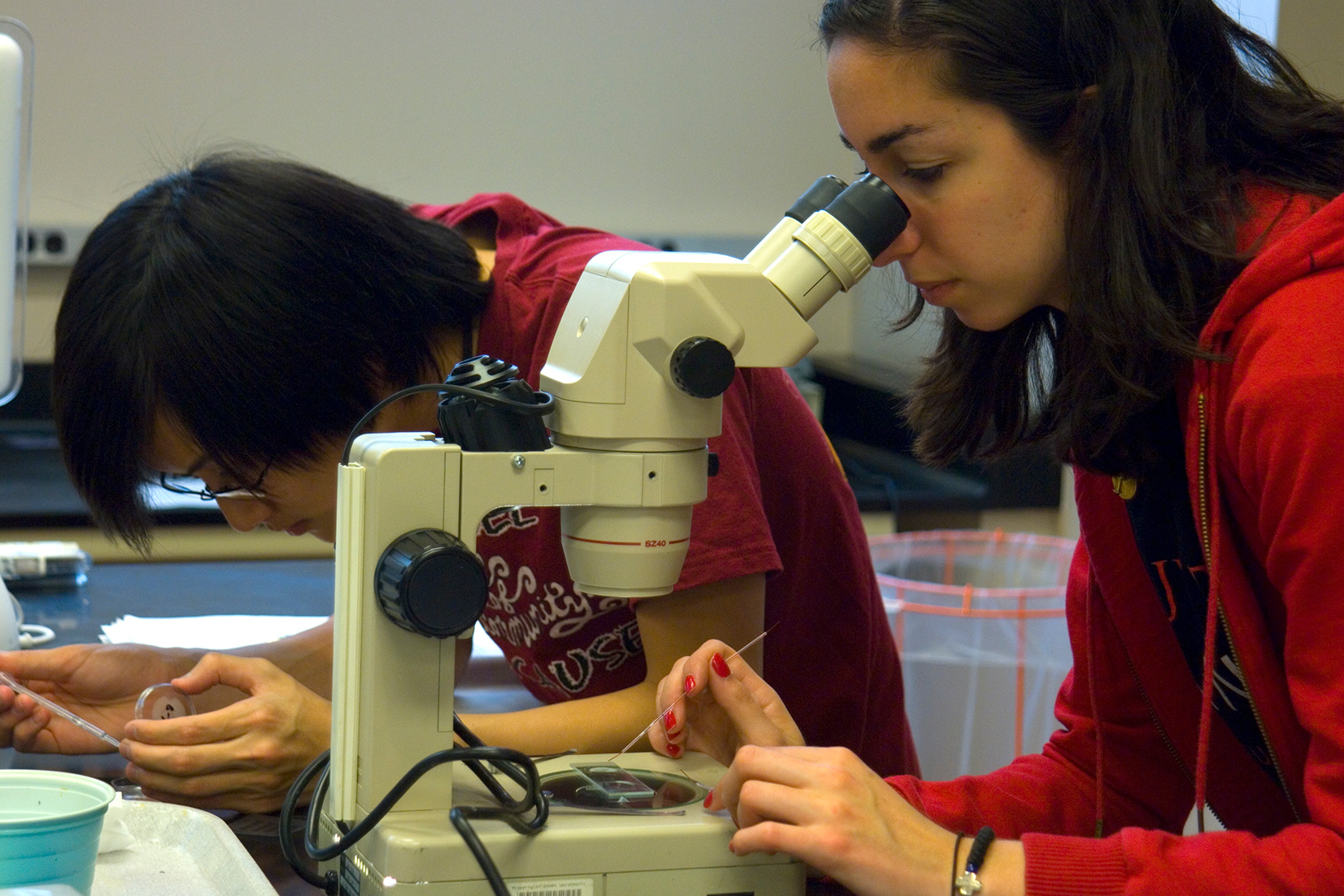Biology
If you’re science-minded, interested in studying life at the microscopic level, and like doing research to improve the quality of life, biology could be the major for you. At Emory, you’ll learn—and have opportunities to apply—cutting edge theory and practice in classrooms, labs, and in the field. Developments in biology are changing our lives daily with new medical and commercial applications. While many biology students are on the pre-med track for their career plans, biology students are well prepared to make an impact through industry, medicine, or academics.
Outcomes
Many people study biology to prep for medical school, but there are many other careers, like biomedical engineer, environmental, food, or forensic scientist, pharmaceutical sales rep, or zoologist. Biologists work in many health-related fields as well as in commercial industries, government agencies and nonprofits.
Recent Emory graduates are working at Grady Health System, National Institute of Mental health, Streamline Health, the NYC Department of Education, PhysAssist, and AIG.
They’re also pursuing advanced degrees at institutions like Johns Hopkins, Yale, George Washington University, Wake Forrest, and Loyola.
Examples of Classes at Oxford
Example of Major Classes
Active Office Hours
Biology lecturer, Patrick Cafferty, creates an engaging environment for student questions during a weekly run. Running together creates an opportunity to discuss class topics, such as the neurobiology behind cramped muscles or the dilation of blood vessels during exercise – as they’re happening.
Ecology of the Tropics
Explore diverse biomes of the tropics with a focus on forests. Over spring break, take the accompanying field course in Peru where you can meet local people, shamans, monkeys, and sloths. Lectures take place on night hikes, boat rides, and in local villages.
Evolution: Conceptions and Misconceptions
Students work in groups to address issues around the theory of evolution and how ideas have changed over time. Through internet research, readings, discussion, simulations and problem-based exercises, explore the nature of evidence and how it is acquired and evaluated.
Dive into Genetic Research

Biology undergraduates explore whale shark immune systems to inform how to improve the immune system in humans. Examining raw genome sequence data is a collaborative research effort with faculty and students in Emory's prestigious School of Medicine and the Georgia Aquarium, the largest aquarium in the Western Hemisphere, and home to two whale sharks.
In our labs, we're shifting away from memorization as a means to success and toward allowing students to learn from mistakes, which includes the excitement of discovering something new.